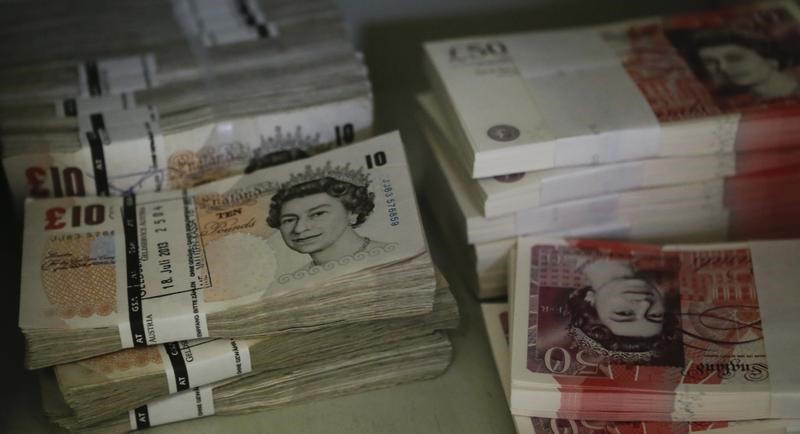By Jamie McGeever
LONDON (Reuters) - Sterling could fall as much as 15-20 percent if Britain votes to leave the European Union, a scenario that could alarm foreign investors and dry up the capital inflows needed to fund the current account deficit, Goldman Sachs (N:GS) said on Thursday.
"The UK's current account deficit would still be a source of vulnerability despite some recent improvement. An abrupt and total interruption to incoming capital flows in response to a 'Brexit' could see (sterling) decline by as much as 15-20 percent," the U.S. investment bank said in a client note.
That would be on a trade-weighted basis, implying a potential fall in sterling against the dollar to around $1.15-1.20 from $1.4565 currently and a rise in the euro to around 90-95 pence from 76 pence, it said.
Britain's current account deficit has narrowed over the past year or so to 3.7 percent of gross domestic product from around 6 percent.
Since November, however, the currency has fallen 5 percent as expectations that the Bank of England will raise interest rates this year have faded. Indeed, the prospect of a cut is back on the table, according to latest money market pricing.
The emergence of 'Brexit' - Britain leaving the European Union - to the forefront of public debate may also have contributed to that weakness.
"Some signs of a 'Brexit' risk premium are appearing," Goldman said, noting that sterling's recent slide has been greater than interest rate differentials against the dollar and particularly the euro would imply.
Goldman expects Britain to remain in the EU and that the underlying dynamics of the UK economy will therefore remain "solid". Its base-case scenario has sterling at $1.40 and the euro at 68 pence in a year's time.
Prime Minister David Cameron has promised to hold a referendum before the end of 2017 but a date this summer is increasingly expected.

On Wednesday, ratings agency Moody's told Reuters that a June referendum would reduce political and economic uncertainty caused by the vote, but again warned that Brexit would be negative for the country's credit rating.